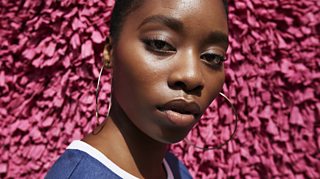Black and British: Your stories and experiences
From protests, to trailblazing, to love across cultures - we share the stories and experiences from black British people which were broadcast on 5 Live during Black History Month.
'I was the first black, female inspector in the force'
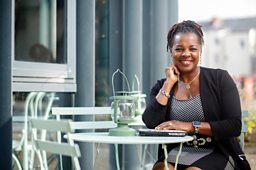
Irene was the first black female inspector in the history of the police force.
She grew up in Liverpool and experienced racism from the police as a child, but a chance encounter with two detectives - who suggested she might make a good detective while she was working as a legal assistant - led her to join the force.
“I expected racism and sexism, but I didn't expect the degree of sexism I found. I didn’t fight every single battle, because it became very weary and, mentally, it’s draining to fight every battle. You have to choose your battles and choose the appropriate ones you want to fight," she said.
“Yes I was very vociferous about how I felt and what I thought and the issues I felt in the police that needed to change. And as my career progressed and I moved up the ladder, I became more confident in airing those views and those opinions.
“When I became an inspector, I didn't know I was the first female black inspector in the history of the force. That spearheaded me to think: 'in this day and age, why are we still so far behind in our representation?'
“I was driven to make a change and open up the police to more minority groups because we absolutely need to represent the community we serve. It was about making that difference and trying to bring more people into the police that were representative of the community.”
‘When you walked in, everybody knew you’
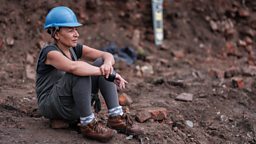
Linda’s parents met in 1957 in Manchester. Her mum was Irish and her dad was Jamaican.
Speaking about her experiences growing up mixed race, Linda said: “To begin with I didn’t understand. I felt odd being mixed race... you don’t understand something’s wrong until it’s not wrong.
“When I was 16, my two best friends were also mixed race and we went to this club in Moss Side called Reno where 70 per cent of the other Reno-goers were mixed race too.
“The music was absolutely banging. It was soul and funk - unheard of then, the DJ imported them from Detroit.
“When you’d walk in everybody knew you," she added. "It always had that feeling of you were either in or you weren’t and that was nothing to do with your colour.
“Without talking about it, we knew each other’s experiences... your mum has Christmas dinner but your dad wants yam and rice. There’s this difference in the household - but as human beings we were just alike but different cultures.”
'When I was 14, and I was first stopped and searched, I was fearful'
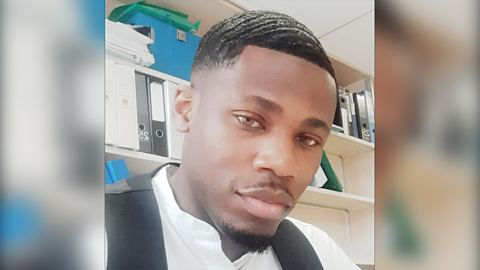
Stop and search: ‘Anger can make the situation worse’
Leon was training to be a barrister when he says he was stopped and searched by police.
Leon says he was stopped and searched seven times between the ages of 14 and 25. In 2014, he had been working as a lawyer for two years when police stopped him on his local high street.
“Two police cars drove down the opposite side of the road really quickly… next thing I know, I was being apprehended and held forcefully by several officers. They slammed me into a park fence so forcefully the screen on my phone broke in my pocket.
“I was told I was stopped because I had a firearm on me, which wasn’t the case. They searched my bag and found a small hammer - the size of your hand - a plaque and a few nails. I was on my way to put up a plaque for my then fiancé, now wife, on Valentines' Day.
“Instead of releasing me, they arrested me for possession of an item they say was used in a burglary. It’s 2014 and I had been called to the bar two years previously, so I had some legal knowledge and I was aware on what grounds police officers could and couldn't stop you.
“By pure luck, my mother and brother were driving past when the incident was happening. They jumped out of the car and the officers changed their tact to become less forceful when there were people who knew me present. Eventually I was released.
“My general demeanour, I think, was key in that situation. When I was 14 and first stopped and searched, I was fearful - and as it kept happening I became angry. But I quickly learnt anger can make the situation worse and escalate it to be more problematic for you.
“Despite having my phone broken, despite being inconvenienced and humiliated on my high street, I kept calm and answered questions politely. Even if you want to be angry in that sort of situation, let the course of action take place without escalating it.”
‘It will sit with me for the rest of my life’
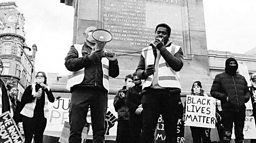
During the Black Lives Matter protests, Nelson Danquah stood on the steps of Grey's Monument in Newcastle and gave a speech to a crowd of thousands.
“It was the Black Lives Matter protest at Monument, right in the middle of the city centre and obviously everyone had been aware what had been going on in regards to the death of George Floyd and how that kick-started protests - not just in America but around the world," she said.
“If you know me personally, I would never really do stuff like this. Originally, I went to the protests as a steward to make sure everyone had masks and kept their distance, but the girl who organised the protests said she’d seen my posts on social media and asked if I’d speak.
“When I got up there, I didn’t really take into consideration how big that was. It was one of those moments you cherish for life - to see so many people come together and stand for a good cause. It will sit with me for probably the rest of my life.
“I wrote something on my phone to read out - but I kind of got lost when I was up there - so I spoke from the heart about how people should come together.
“I want to send a message to people that we really do need to stick together, because at the end of the day we really are in this together. When we do that, I think we can move forward.”
‘The countryside is a predominantly white space’
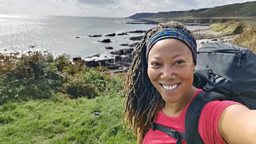
Rhiane is the founder of Black Girls Hike, a walking group created to help black women feel comfortable exploring the countryside.
“The outdoors helps your anxiety, it’s good for confidence building, clearing your mind and gives you other things to focus on," she said.
“I think it’s really important people see role models doing it because once you see someone like yourself doing it, it makes it a possibility then.
“The countryside is a predominantly white space, there have been reports saying you’re more likely to experience racism in the countryside, so it’s not necessarily a case of it’s all in your mind, that does put you off. You do feel like you’ll be judged going in those spaces.
“We get accused of being racist because we only allow black women to join. People say we’re encouraging segregation, which is not the case. I think we’re being inclusive because we’re including black people in the outdoors.
“It’s not a case of excluding people, it's giving people the opportunity to try something, become more comfortable and then they might be more likely to enter white spaces on their own in the outdoors.”
Listen to the podcast on ÃÛÑ¿´«Ã½ Sounds
-
![]()
Black and British: Your stories and experiences
From protests, to trailblazing, to love across cultures - 5 Live’s Alice During shares an audio collection of stories and experiences from black British people, broadcast on the network during Black History Month.
